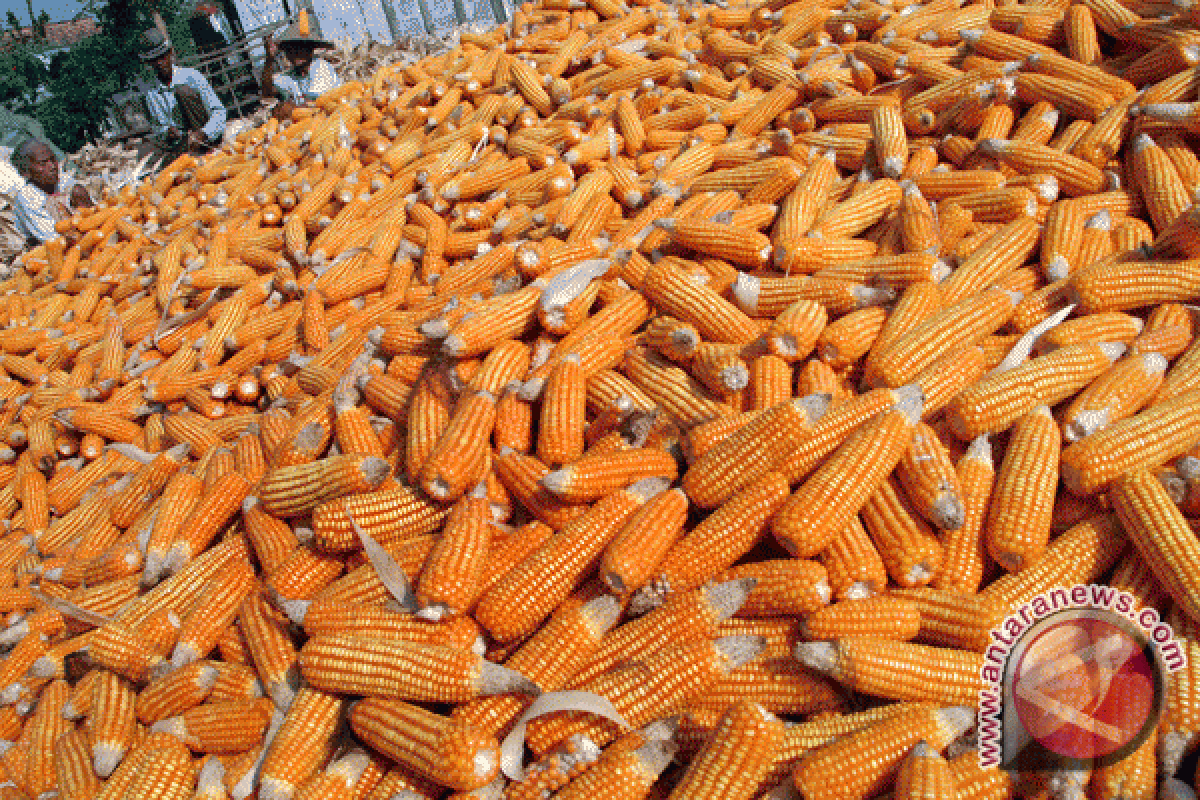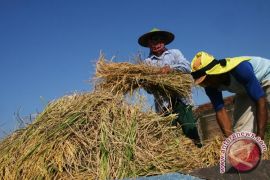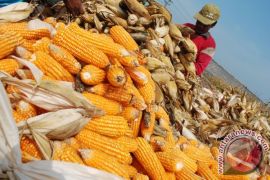"If we want to have food security, we must increase our food productivity."Jakarta (ANTARA News) - The Indonesian government needs to pay serious attention to domestic food security amid the soaring global food prices.
Based on the World Bank Group`s latest Food Price Watch report, global food prices are on the rise again, threatening the food security of millions of people around the world.
Therefore, the government should do something to maintain domestic food security and sovereignty.
According to the report, global food prices increased by 8 percent from December 2011 to March 2012 as a result of higher oil prices, adverse weather conditions and Asia`s strong demand for food imports.
However, agriculture observer at the Indonesia Political Economic Association Khudori opined that the government should maintain the nation`s food security by giving serious consideration to farmlands, research pertaining to superior seed, infrastructure, budget allocation and agricultural institutions.
He added that the conversion of farmland for non-agricultural purposes, poor irrigation networks, low farm productivity, and poor post-harvest management could contribute to lowering the country`s food production.
"For food security, our farmland is not large enough, and therefore the government should prevent the existing rice fields from being converted to other purposes," Khudori remarked.
According to Khudori, the government should promote research to obtain a variety of productive and superior seeds that are resistant to pests and poor weather conditions.
Meanwhile, Vice Chairman of Indonesian Farmers Solidarity Association (HKTI) Rahmat Pambudy stated that the country needs to increase its rice productivity in order to achieve its food security goals.
"We keep importing 2 to 3 million tons of rice every year because of inadequate domestic production. If we want to have food security, we must increase our food productivity," Rahmat declared in Jakarta on Tuesday.
According to Rahmat, food productivity can be increased by using good seeds, a balanced fertilizing process and developing new cultivation techniques such as the rice intensification system.
"To stop rice import of 2 to 3 million tons every year, we have to increase our food productivity by 6 to 8 percent," Rahmat noted, adding that an increase of 3.2 percent would not suffice to meet the domestic rice demand.
Agriculture Minister Suswono had stated earlier that the government's target was to increase food productivity by 3.2 percent in 2012 as compared to last year`s harvest, which yielded 68 million tons of milled dry grain, and to increase it further by 6 percent in 2013.
Then in 2014, the minister said, there would be a rice surplus of 10 million tons if the state logistics agency (Bulog) absorbed 6.8 million tons of unhusked rice or 4 million tons of rice from the farmers.
Deputy Agriculture Minister Rusman Heryawan recently announced that the government was in the process of drafting an international cooperation scheme intended to safeguard the country`s food security, particularly with regard to supply chains.
"This is a kind of international cooperation to safeguard our food security, particularly supply chains, by among others strengthening our ASEAN+3 (Japan, South Korea and China) networks and cooperating with the United States, which is known for its success in safeguarding food security," he explained.
According to Rusman, Japan is one of the countries with which Indonesia would like to cooperate in terms of food security.
"This cooperation deals not only with emergency rice reserves but also with the revitalization of the agricultural sector, irrigation networks and agricultural institutions. Our target is to no longer import rice," he added.
Rice constitutes more than half of the total food crops produced and consumed in Indonesia, thus playing a major role in the livelihoods of Indonesians.
As Indonesia is the world`s fourth-largest rice producing country, the Indonesian government wants to consistently promote rice production along with improvements in farmer welfare.
Therefore, Indonesia is firmly committed to strengthening global efforts to overcome poverty and food insecurity through effective, competent and reliable global food governance.
Consistent with its international commitments, the Indonesian government has, at the national level, set four major agricultural targets for the next five years.
These targets are, first, to sustain the country's self-sufficiency in the production of major food crops; second, food diversification; third, to further add value to food production, enhancing competitiveness and boosting exports; and fourth, improving farmers living standards.
Vice President Boediono had once remarked that achieving food security is compulsory in Indonesia, which is the world`s largest archipelagic country with around 17,504 islands as well as the world`s fourth most populous one.
At that time, the vice president had also pointed out that a possible increase in population growth in the future could create fears of food insecurity that would continue to haunt the country.
"If we fail to take serious and systematic steps from now on to anticipate food insecurity, it will continue to haunt us," the vice president had remarked last year.
In reality, he asserted, Indonesia was blessed with abundant natural resources, both at sea and on land, to provide more than sufficient food to its people now and in the future.
If appropriate technology could be utilized to manage the country`s natural resources, it would be possible to produce food in excess of the Indonesian people's needs, which could even be used to help meet the world`s food needs.
"Managing the abundant natural resources appropriately and productively is the key to helping the people of this nation live in prosperity," the vice president declared.
He added that food security should be made a top priority in the national interest, and that food production should not merely equal but exceed the people`s demands, which would result in a food surplus.
(T.O001/KR-BSR/A014)
Reporter: by Otniel Tamindael
Editor: Priyambodo RH
Copyright © ANTARA 2012











